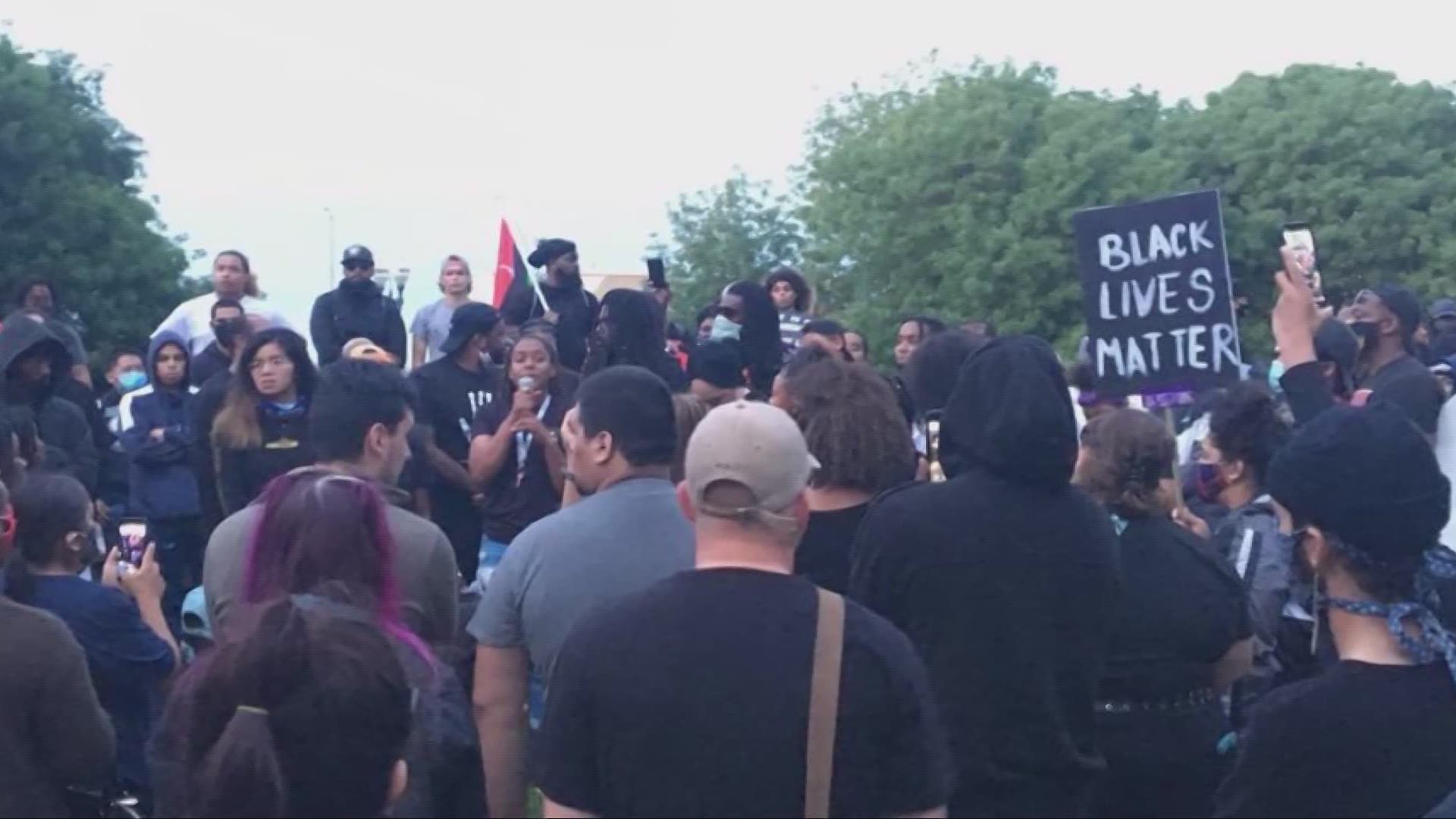SACRAMENTO, Calif. — Sally Hubbard’s 14-year-old son Ethan has watched the protest going on in Sacramento due to the death of George Floyd. Hubbard said talking about racism with her child can be difficult, but she also said it's important for him to understand that everyone isn’t treated equally.
“You are a white boy in this world, and you need to know how other people might see the world in a other way than you do,” Hubbard said.
Lamills Garrett also has a son, Alon, who is 14. He said the topic of racial inequality is something that he has talked to Alon and his other children about long before the world heard George Floyd’s last words, “I can't breathe.”
“Typically, their experiences force the conversation more so than me choosing it,” Garrett said.
Garret and Hubbard are two different parents from two different walks of life, but both talk to their sons about the reality of racism.
When it comes to finding the right words to use with your children, the common denominator appears to be sharing experiences.
“We are frequently having discussions about his own experiences, and what he deals with in school or what we see in the community or what I know he needs to be prepared for growing up as a black man,” Garrett said.
For Hubbard, the lesson is about helping him understand that people are different and can carry different experiences.
Deloy Link, a family therapist, often speaks with parents of all racial backgrounds on how to have the conversation about race with their children.
“Black families do sit down and have these conversations with their kids when their kids are young, saying 'We need to prepare you for this.' White families traditionally haven’t done that, but they need to. They need to sit down, and they need to say, because of the color of your skin, you have not felt oppression. You have not felt the same prejudice. You haven’t felt the same racism,” Link said.
Link says people should talk to their child about what they are seeing in the news and listen.
When they ask questions about race, be honest with your response while also knowing the maturity level of your child. Also, try using a metaphor when explaining why people protest and the consequences of looting and rioting.
Lastly, a parent should begin discussing what race and discrimination is as soon as their child can talk and respond back.
Follow the conversation on Facebook with Monica Coleman.
READ MORE FROM ABC10:
- Family of Sacramento teen shot in face with rubber bullet by deputy says he will need jaw surgery
- Minnesota Dept. of Human Rights files civil rights charge against Minneapolis police
- 'It's a sense of pride. It's a sense of fear' | Roseville family talks about emotional moment captured of father and son embracing
- Sacramento County declares state of emergency amid 'civil unrest'
- Want to help? Organizations looking for and offering support after Minneapolis unrest
FOR NEWS IN YOUR COMMUNITY, DOWNLOAD OUR APP:
►Stay In the Know! Sign up now for the Daily Blend Newsletter



